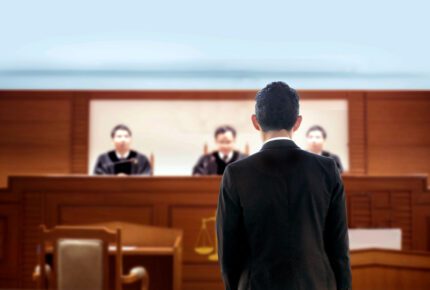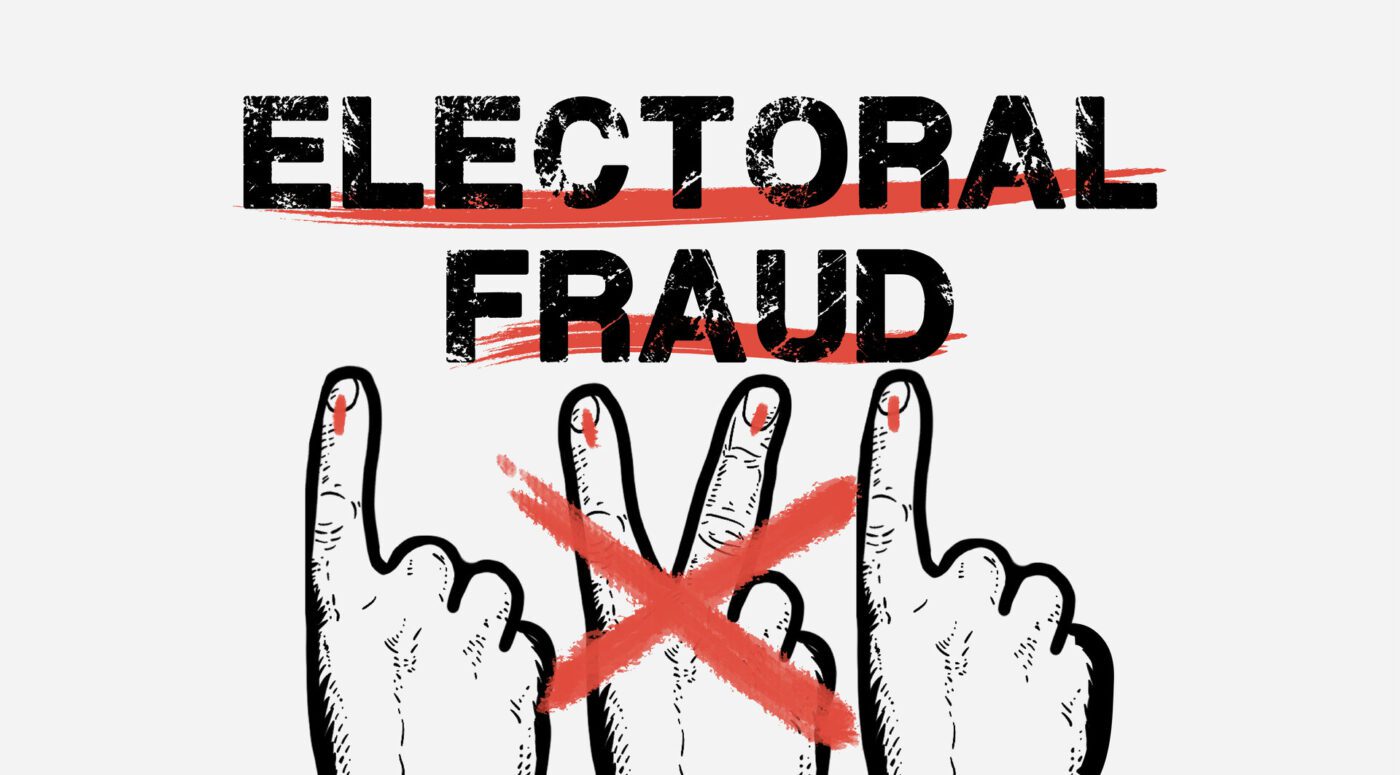

According to the latest data from the Electoral Commission, cases of electoral fraud in the UK remain relatively low. However, if you find yourself arrested or charged with such an offence, obtaining help from a solicitor as early as possible is really important in ensuring your rights are protected. This article aims to guide you through the important steps you should take if faced with allegations of electoral fraud. We will address common questions such as the necessity of hiring a solicitor, the potential defences available to you, and the likelihood of being granted bail.
Do I need a solicitor for electoral fraud?
Electoral fraud, also referred to as electoral malpractice, can involve a variety of activities that unlawfully interfere with the electoral process. Numerous pieces of legislation are involved in prosecuting this crime. This could range from influencing votes or tampering with ballots to improperly registering voters. Given the serious nature of these allegations, engaging a solicitor can be immensely beneficial for several reasons.
Firstly, electoral fraud cases can be complex. The legal framework governing elections in the UK is intricate, with specific laws and regulations that determine how elections should be conducted. A solicitor specialised in criminal defence will have a thorough understanding of these laws and can provide guidance on how they apply to your case.
Secondly, a solicitor can help ensure that your rights are protected throughout the legal process. From the initial investigation to any subsequent trial, a solicitor can advise on procedures, ensuring there are no violations of your rights, and that any evidence used against you is obtained and handled lawfully.
Furthermore, if your case proceeds to court, having a solicitor to represent you can be crucial. They can present arguments on your behalf, question witnesses, and strive to undermine the credibility of the prosecution’s evidence, all in an effort to achieve the best possible outcome.
What are possible defences for electoral fraud?
Each case of electoral fraud is unique, and the defences will depend on the specific circumstances and evidence. Here are some common defences that might be considered:
- Lack of intent: One of the most common defences is demonstrating that there was no intent to commit a crime. If it’s possible to show that any actions taken were accidental or mistaken without any fraudulent intention, this could serve as a valid defence.
- Mistake of fact: If a defendant can prove that they were genuinely mistaken about a critical fact, which led them to commit what appears to be electoral fraud, this might be used as a defence. For example, if someone voted in the wrong district due to an administrative error, they might not be held criminally liable.
- Duress: In situations where an individual was forced or coerced into committing electoral fraud, demonstrating duress may be a valid defence. This requires showing that the person was under immediate threat of harm and had no reasonable means of escape.
- Insufficient evidence: A defence might centre around the argument that the prosecution lacks sufficient evidence to prove the defendant’s guilt beyond a reasonable doubt. This involves scrutinising the evidence for gaps or inconsistencies.
- Procedural errors: If law enforcement or election officials did not follow proper procedures during the election process or investigation, it might form the basis for a defence. Procedural errors could include mishandling of evidence or failing to provide proper notice of the charges.
- Alibi: Establishing an alibi can be a straightforward defence. If the defendant can conclusively prove they were elsewhere at the time of the alleged offence, this could exonerate them.
Will I get bail for electoral fraud?
In England, the decision to grant bail is typically left to the magistrates or the court, and the primary consideration is whether the accused poses a risk. When assessing whether to grant bail for electoral fraud charges, the court will consider several key factors:
- Nature and seriousness of the offence: Electoral fraud is a serious offence, but the specific circumstances of the alleged crime can affect the bail decision. For example, isolated incidents might be viewed differently compared to organised and widespread schemes.
- Previous criminal record: The court will look at your criminal history. A lack of prior offences may favourably influence the decision, while a history of similar offences could raise concerns.
Ties to the community: Strong ties to the community, such as having a stable job, family responsibilities, and a fixed abode, may suggest that you are less likely to abscond. - Risk of re-offending: The court will assess whether there is a likelihood you might commit further offences while on bail, including the risk of tampering with evidence or interfering with witnesses.
- Risk of absconding: The court needs to be confident that if you are granted bail, you will attend all required court dates. Factors such as family connections and employment can influence this decision.
Will I have to go to court if I’m arrested or charged for electoral fraud?
The likelihood is that you will have to attend court for charges of electoral fraud, but there are some minor cases where you might not have to. In deciding whether to require your appearance in court, the authorities are taking into account:
- Nature of the charge: Electoral fraud can encompass a variety of offences, such as voting when not eligible, influencing votes unlawfully, or tampering with ballots. Some cases might be less severe and handled differently, but most allegations of electoral fraud are treated seriously.
- Initial police involvement: When a complaint of electoral fraud is made, it often will be investigated by the police. Depending on the findings, they might decide to press charges. If charges are laid, the matter is likely to progress to court unless resolved otherwise.
- Seriousness of the offence: Minor infringements might occasionally be settled outside of court; however, due to the nature of electoral fraud and its potential impact on democratic processes, court proceedings are common.
- Legal advice: If you are accused of electoral fraud, consulting a criminal defence solicitor is crucial. They can offer guidance on how to proceed, including whether court attendance is inevitable. Your solicitor will evaluate the evidence, advise you on your plea, and represent your interests.
- Court proceedings: If your case does go to court, it typically starts in the Magistrates’ Court. Depending on the severity of the charges, it may be escalated to the Crown Court.
Will I go to jail if found guilty of electoral fraud?
The severity of the penalties for electoral fraud can vary based on what you are charged with. For serious offences, such as personation, which involves voting as someone else, the law allows for a custodial sentence.
When deciding on a sentence, courts will consider:
- The seriousness of the offence: More serious offences, where the integrity of the electoral process is significantly compromised, are more likely to attract a custodial sentence.
- Mitigating factors: These could include a lack of previous criminal convictions, an early guilty plea, or evidence that the offence was not pre-planned.
- Aggravating factors: These might involve a high level of planning or if the crime was part of a larger scheme involving multiple people.
Possible sentences for electoral fraud include:
- Custodial sentences: This can range from a few weeks to several years in prison, depending on the severity of the offence and any aggravating circumstances.
- Fines: In some cases, a financial penalty may be imposed instead of, or in addition to, a custodial sentence.
Will I go to jail if it’s my first offence of electoral fraud?
If it is your first offence, the courts will consider several factors before deciding on the appropriate sentence. These factors include: the nature of the offence (minor breaches may result in a warning or a community sentence, while more serious fraud cases could lead to harsher penalties); intent and premeditation (if the offence was a genuine mistake or carried out without malicious intent, the court might show leniency); and personal circumstances (the court may consider your personal circumstances, such as your age, employment status, and family responsibilities, which could influence their decision).
Can I get Legal Aid for electoral fraud?
Legal Aid aims to ensure that everyone has access to legal advice and representation, regardless of their financial situation. To determine eligibility for Legal Aid in England and Wales, you will need to satisfy both the ‘means test’ and the ‘merits test’.
- Means test: This assesses your financial situation to establish whether you can afford your own legal costs.
- Merits test: This evaluates the seriousness of the case and whether it is in the interest of justice for you to receive Legal Aid.
Where to get more help
Engaging a knowledgeable criminal defence solicitor can significantly impact the outcome of your case by providing expert guidance and representation. Remember, the law is there to ensure fair treatment and justice, and having the right support can help you navigate this challenging process. If you are facing criminal charges or need advice, don’t hesitate to contact us at Stuart Miller Solicitors for a free consultation.
OUR COMMITMENTS TO YOU:
-
Responsive
A legal expert will consult you within 24 hours of making an enquiry.
-
Empathetic
We will always treat you with trust, understanding and respect.
-
Specialised
Your case will be handled by an expert who specialises in your type of offence.
-
Proactive
We will take early action to end proceedings as soon as it is practically and legally possible to do so.
-
Engaged
You will be kept updated on your case at all times. We will provide a named contact available to answer your questions.
-
Caring
We understand this is a difficult and stressful time for you and your family. Our team will support you every step of the way.
-
Tenacious
We will never give up on your case. We fight tirelessly to get you the best possible outcome.

